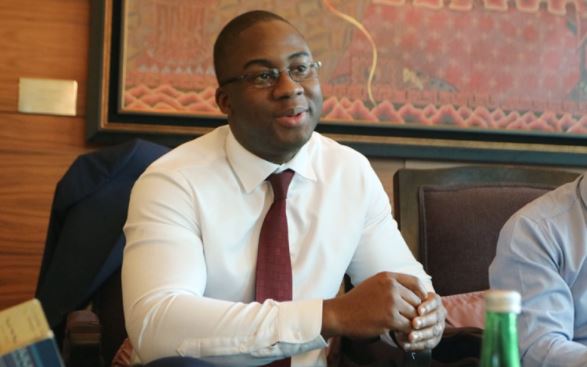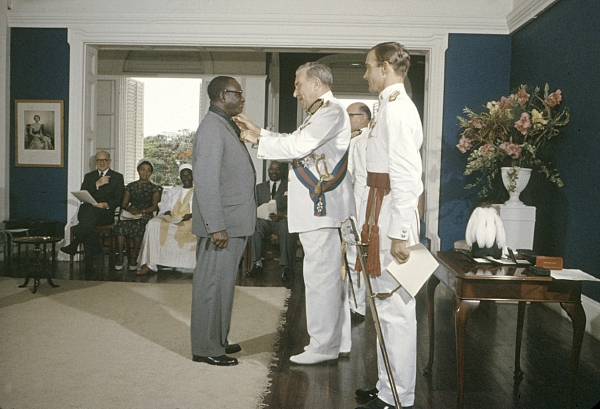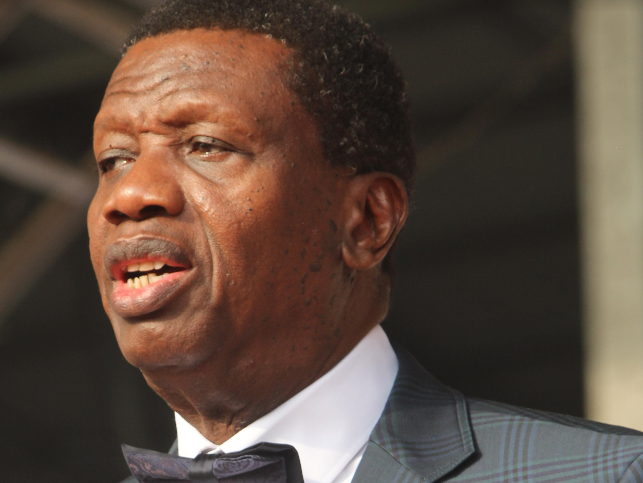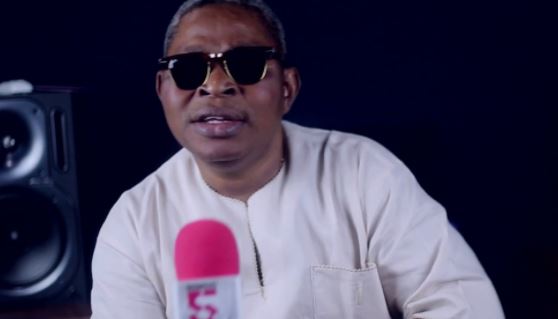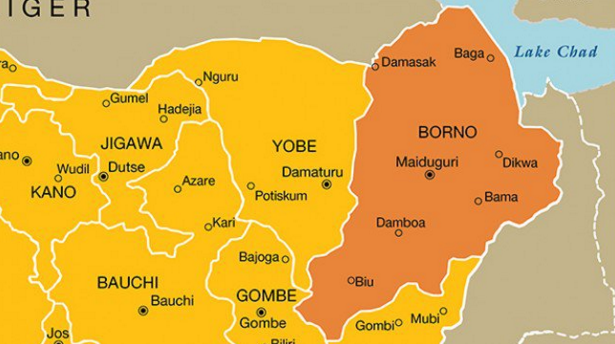Lukman Otunuga, a research analyst at FXTM, says Nigeria has borrowed enough in recent times and could miss the opportunity to bounce back if borrowed funds are not well utilised.
The federal government through the Debt Management Office has issued various debt instruments like the Sukuk, Eurobond, savings bond and plans to float a Green bond in December.
In an interview with TheCable, the macroeconomic analyst said forex injections into the market by the Central Bank of Nigeria to protect the naira is not sustainable in the long term.
TheCable: CBN has maintained interest rate and some people think that decision should have changed considering GDP growth. What’s opinion about this?
Advertisement
Otunuga: What CBN is doing is that it is being careful. Nigeria’s economic condition has improved significantly since 2016 from a recession to 1.4 percent growth. What I believe that the CBN is doing at this time is that it wants to wait till inflation eases further. It has eased for nine consecutive months so I believe that when it dips below 15 percent or gets close to 14 percent, that is when the CBN will take action and reduce interest rate to 14 percent. Reduced interest rate will stimulate economic growth because the cost of paying back is cheaper.
TheCable: The CBN governor said he hopes inflation hits single digit by 2018. Given the current trends, is that possible?
Otunuga: Single digit? That’s quite optimistic. It’s going to take something special to get inflation rate to single digit because we must keep in mind firstly that the cause of this inflation was cost inflation. When the naira depreciated sharply, it was hitting people who import and they pushed the cost to consumers and with the implementation of the NAFEX, we have dollar liquidity and inflation rate slowly coming down. If you look at the speed that it’s been coming down, it’s been 0.1 percent. If you follow that pattern, for us to see single digit will probably be 2019 or 2020.
Advertisement
TheCable: What should be done to sustain the current growth being experienced?
Otunuga: Everything that has been done is right locally. With inflation stabilising, there’s a positive sentiment that can be felt across the Nigerian economy. At the same time, the government has been taking steps to diversify the economy. Look at the 2018 budget, non-oil revenue is expected to exceed oil revenue. When international investors see things like that, it’s going to boost confidence towards Nigeria’s economy. For what Nigeria should do moving forward, as bland as this may sound, they probably don’t need to do anything; just to keep observing how things are going and keep doing what they are doing already.
TheCable: Do you think OPEC will ask Nigeria to join the production cuts soon?
Otunuga: It’s going to get to a situation that some members will start complaining that since Nigeria is able to pump above 1.8 million barrels a day, why can’t they join? There will be a situation where OPEC will request that Nigeria and Libya limit output. Nigeria doesn’t want to be in a situation where it disobeys OPEC and because Nigeria’s disobedience will ruin the deal and every other OPEC member starts not to respect the deal and they start to blame Nigeria for not respecting the deal.
Advertisement
TheCable: The 2018 oil production benchmark is 2.3mbpd and there is an OPEC agreement that might limit production to 1.8mbpd. What do you make of this?
Otunuga: The budget says 2.3 million barrels and they might cap at 1.8 million, where are they going to get the 500,000 are they going to borrow more to fund it?
I think Nigeria has already borrowed enough. The 2018 budget is 16 percent increase over the 2017 budget. Borrowing is needed at this stage because unfortunately, Nigeria is still dependent on oil. The chunk of the growth was from the oil sector and the other was from agriculture. My fear is that they borrow so much and the funds are not used for what they are supposed to be used for and Nigeria misses that the window of opportunity to bounce back.
TheCable: There’s a rave about bitcoin. Do you share sentiments that it’s dangerous to invest in it?
Advertisement
Otunuga: You can’t blame them, bitcoin was less than $1000 at the start of the year and now it has hit $10,000, that’s over 900 percent year-to-date and that is a super-normal gain. Naturally in Nigeria, when investors see that, they want to be a part. It is this kind of mentality that drives bitcoin higher. Everybody wants to be part of it because there is no fundamental driver in bitcoin and it is only investors trying to get a slice of the pie. My only concern is that it has no intrinsic value, it’s been made out of nothing. It might just be a speculative bubble and like all bubbles, it will eventually burst. I don’t think $10,000 will be the limit with the way things are going.
Right now there is so much positivity about bitcoin and it’s a fling, everybody wants to be part of it. If you’re in it, you’re winning it. I won’t go into it myself so I won’t advise anyone to go into it. If I was in it earlier, it would probably be a different story.
Advertisement
TheCable: Is the naira still at risk?
Otunuga: What the CBN has been doing is injecting forex and that continues to stabilise the market. Even though this may protect the naira in the short term, it doesn’t look quite sustainable. CBN rate is N305 as against N360, there’s a gap of N55, who is profiting from that? For the naira to continue to appreciate against the dollar, it might be on the part of the dollar because the dollar hasn’t had a good year. Earlier in the year, it was strong but with investors losing faith in Donald Trump’s ability to move forward on tax reforms and the uncertainty about higher interest rates in 2018, the dollar has weakened tremendously and this may support emerging market currencies which the naira happens to be one. If the dollar continues to weaken, we might see a situation where the parallel moves closer to the CBN rate. Naturally, if oil prices crash, the government has money to spend so they have been injecting in the market. Even though Nigeria is in the quest to diversify, it’s still exposed to external shocks. If oil prices start to depreciate, it would affect the naira.
Advertisement
Add a comment

